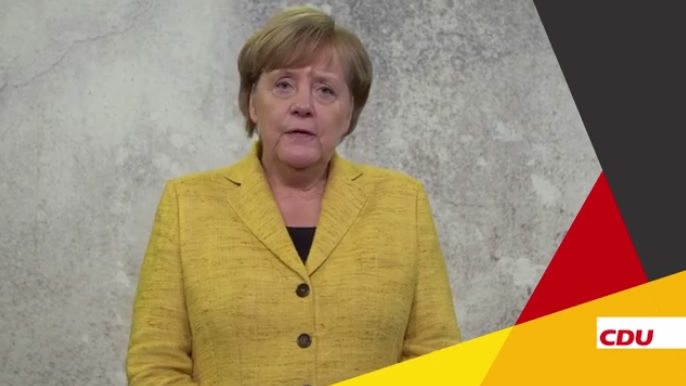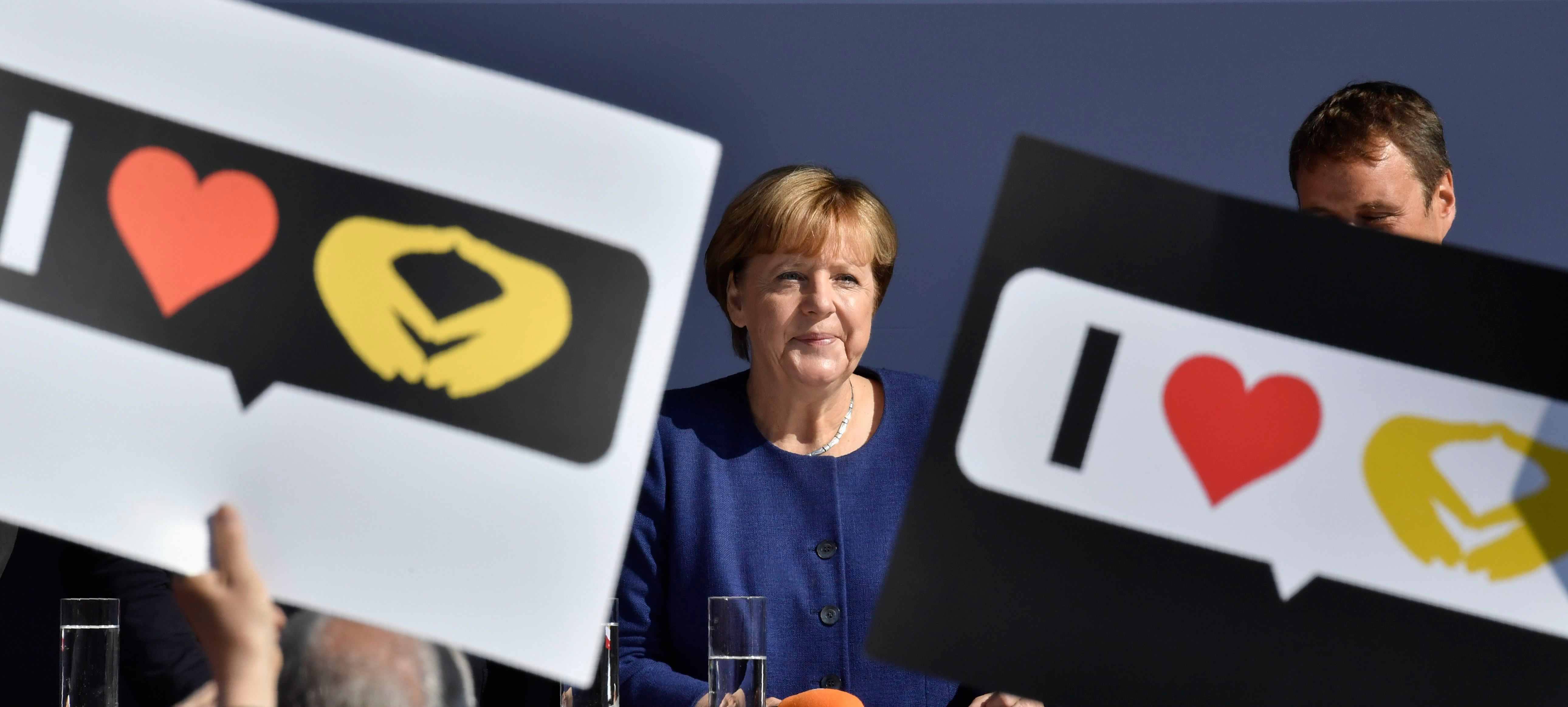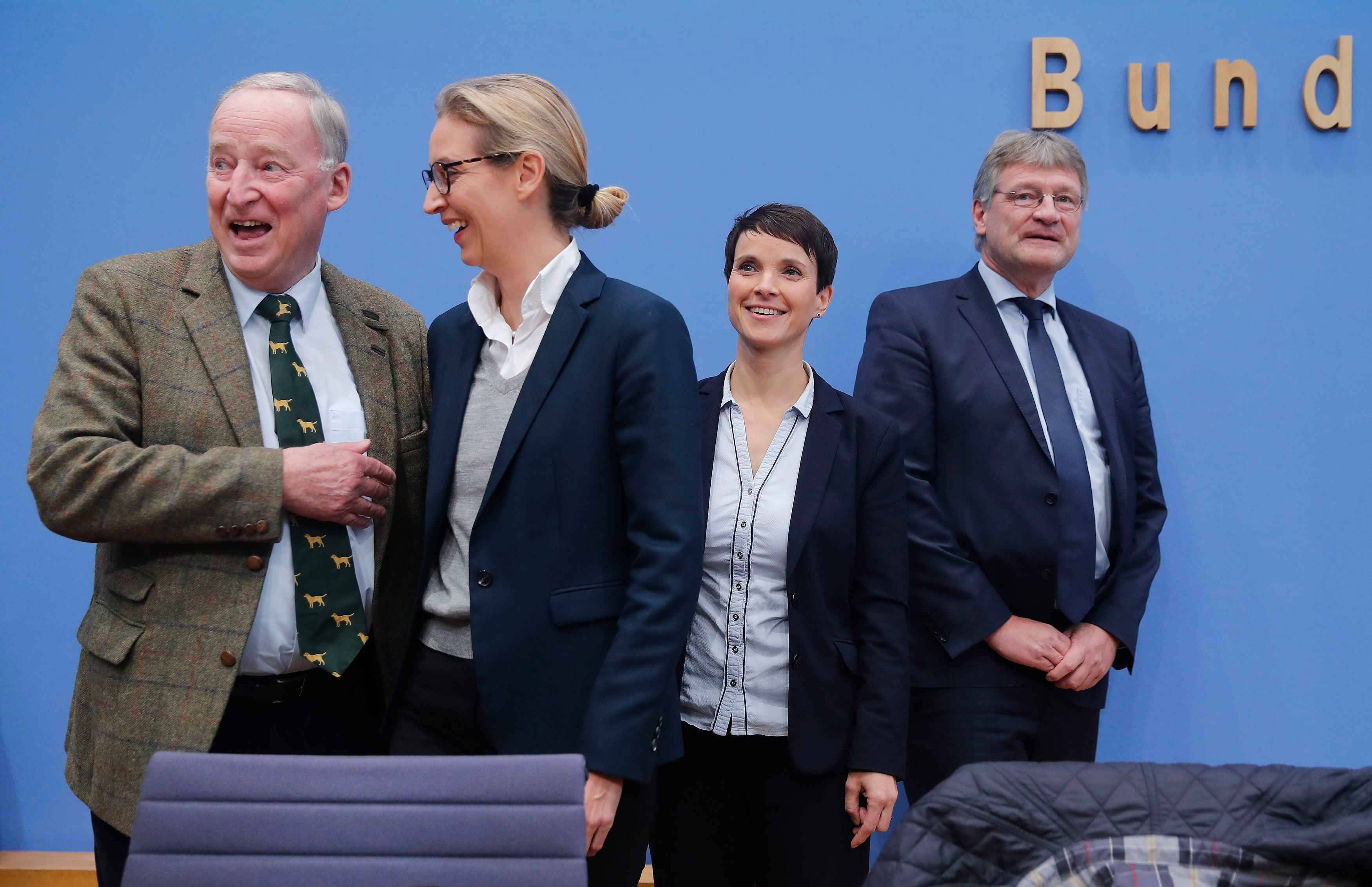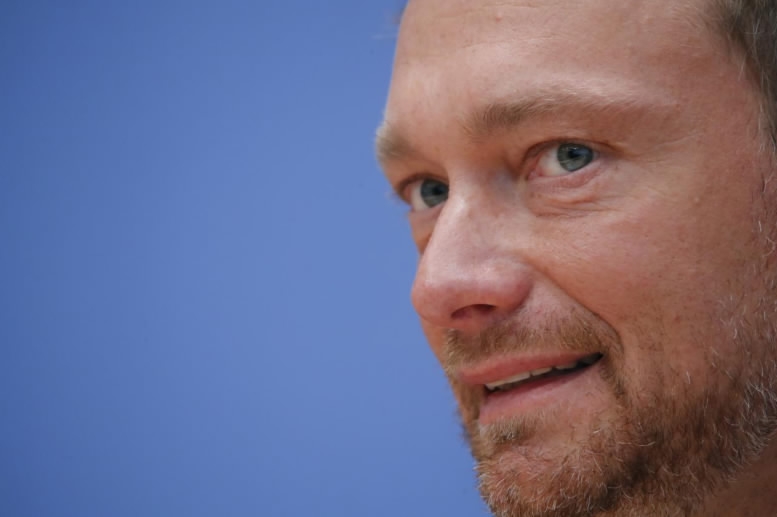
Politics
12:30, 07-Nov-2017
Merkel struggles for progress in coalition talks
CGTN

Despite weeks of exploratory talks to form next government, German Chancellor Angela Merkel is still struggling to start formal negotiations that she now wants to start in 10 days.
Merkel's Christian Democratic Union (CDU) released her video message posted on the party’s official Facebook page on Monday, in which she discussed prospects for the new government.
She said climate policy and immigration are the most contentious in exploratory talks between the CDU, the pro-business Free Democratic Party (FDP) and the Greens.
An uphill battle
Merkel secured a fourth term in office after a difficult win in the September 24 national elections. But her party lost a considerable amount of votes to right-wing populist Alternative for Germany (AfD) that has become the third biggest party in the federal parliament.
The election results were also disappointing for Merkel’s current coalition partner – Social Democratic Party (SPD) – that has decided to sit on the opposition benches, making it harder for the Chancellor to form a coalition government.

The post-election conundrum has made it difficult for Merkel to form a coalition government and the task may take months. /AFP Photo
The post-election conundrum has made it difficult for Merkel to form a coalition government and the task may take months. /AFP Photo
The possibility of working with AfD was ruled out because of its far-right ideology. Merkel is now following a scenario of so-called "Jamaica mode" coalition, because of the colors of Jamaica's national flag and the traditional colors of the political parties – the black CDU/CSU, the yellow FDP, and the Greens.
Six weeks have passed since elections, but the formal coalition talks are yet to start.
Challenging goals
Clear differences remain between the CDU, the FDP and the Greens on energy, immigration and climate.
"For me, it is clear that on the subject of finances the question is how we can use the room for maneuver (in the budget) so that everybody can have their priorities implemented while at the same time ensure that we have a balanced budget," Merkel said in the video.
"On the subject of climate protection, challenging goals for 2020 that we undertook as federal government under my leadership are not so simple to meet," she added, shortly before a meeting with other party leaders to try to nudge the talks forward.
"The theme that is especially important for us is the issue of immigration and integration," she said. "These will be difficult issues."

Frauke Petry (2nd R), chairwoman of the anti-immigration party Alternative for Germany (AfD) poses next to Joerg Meuthen (R), leader of the party and top candidates Alice Weidel and Alexander Gauland (L) before a news conference in Berlin, Germany, September 25, 2017. /Reuters Photo
Frauke Petry (2nd R), chairwoman of the anti-immigration party Alternative for Germany (AfD) poses next to Joerg Meuthen (R), leader of the party and top candidates Alice Weidel and Alexander Gauland (L) before a news conference in Berlin, Germany, September 25, 2017. /Reuters Photo
Party leaders have expressed hope for a more precise focus on policy detail to reinvigorate talks that have hardly inched forward since elections.
Merkel said she wanted the exploratory negotiations to end on November 16 after which the parties can launch proper discussions that can conclude with a coalition pact.
The Greens and FDP pin the blame for the lack of real progress on each other.
"By dragging their foot on climate protection, the FDP are playing into the hands of climate change deniers like (U.S. President Donald) Trump," Greens party chair Simone Peter told a news conference.
"The lack of seriousness has to stop."
But Greens co-leader Cem Oezdemir hinted in an interview with the Stuttgarter Zeitung at the ecologist party preparing to relent on its insistence that the next government commits to removing all combustion engines from roads by 2030.
A common ground
"It's clear to me that we alone would not be able to insist that 2030 will be the year when combustion engines are no longer," he said. The Greens wanted instead of a "clear commitment" that the cars of the future are emissions-free, he said.

Free Democratic Party FDP leader Christian Lindner reacts during a news conference in Berlin, Germany, September 25, 2017. /Reuters Photo
Free Democratic Party FDP leader Christian Lindner reacts during a news conference in Berlin, Germany, September 25, 2017. /Reuters Photo
FDP leader Christian Lindner said the hard work of reaching a common ground was only now beginning.
"There haven't been attempts to build bridges in the past two weeks because that wasn't the purpose," he said. "We look forward to this phase to moving from outlines to the facts and goals that need to be harmonized – or not, as the case may be."
Senior Greens complain that talks have been hamstrung by the FDP's lack of preparedness. After a four-year absence from the federal parliament, the FDP lacks the policy expertise needed to negotiate the compromises that are needed, Green officials say.
But Lindner said he opposed the Greens' desire to "make an example of industrial Germany" by forcing it to meet expensive and constraining climate protection targets, and he suggested Germany could have a greater impact on the climate by helping other countries to improve their emissions record.
(With input from Reuters)

SITEMAP
Copyright © 2018 CGTN. Beijing ICP prepared NO.16065310-3
Copyright © 2018 CGTN. Beijing ICP prepared NO.16065310-3